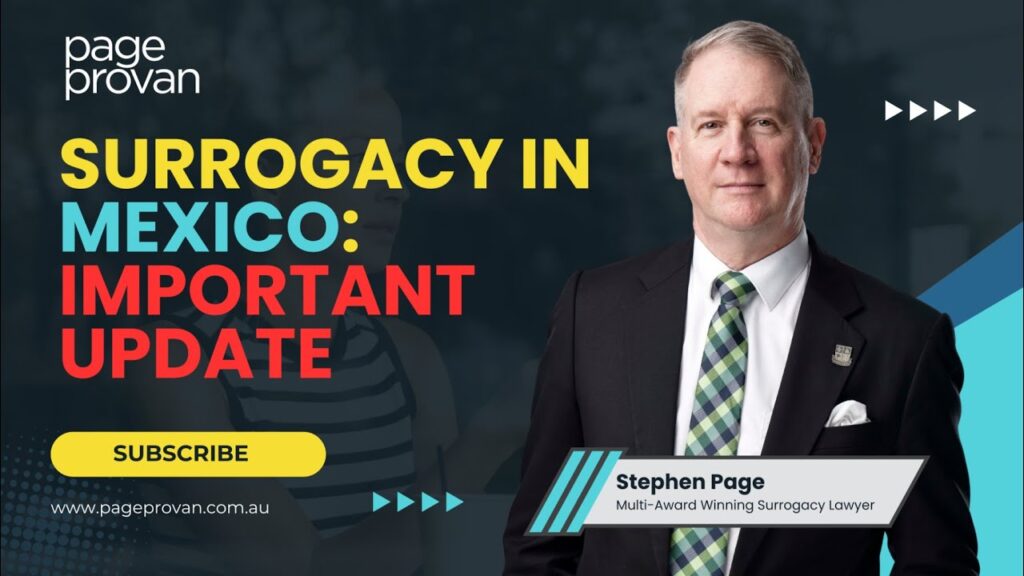If Roxon’s bill is passed, the proposed Queensland changes may be dead
Those intended to be excluded were gay and lesbian couples, singles, and those in a de facto relationship of less than 2 years.
This intended discrimination is contrary to that in NSW, Victoria, Tasmania and the NT, which do not discriminate. WA discriminates by making those eligible for surrogacy having to be married or in a heterosexual de facto relationship or single women. Gay and lesbian couples and single men need not apply. SA has similar laws to those proposed for Queensland.
The ACT does not discriminate against gays and lesbians, but does so against singles. Those seeking surrogacy and surrogates (and their partners) must be a couple.
Federal Attorney-General Nicola Roxon has announced comprehensive Commonwealth anti-discrimination legislation. Currently unlike State legislation, the Commonwealth legislation has been piecemeal, for example covering racial discrimination, and that against women.
The draft exposure Anti-Discrimination Bill, if passed, and upheld by the High Court following an inevitable challenge, will change all that. It appears that it will ensure that discrimination no longer applies in surrogacy. Australians wherever they are should be able to seek surrogacy without any concern that the current discriminatory regimes will prevent them from proceeding.
This law, if passed and if upheld by the High Court, should kill dead the proposed Queensland changes. This doesn’t mean that the Newman Government won’t proceed with its changes- it says it will, and the Newman Government’s statement should be accepted on face value- but if passed this draft Bill should invalidate those discriminatory changes.
This is because of the effect of section 109 of the Commonwealth Constitution. The Founding Fathers were keen to put in a provision in the Constitution that says if there is a conflict between State and Commonwealth laws one must prevail- and section 109 says that the Commonwealth laws are the ones that prevail.
The draft Bill has a three card trick in dealing with discrimination, which as I will show, should remove discrimination in surrogacy matters.
The scenario
Bill and Ben, a gay couple, enter into a surrogacy arrangement. They are able to obtain treatment for the surrogate, a child is born and with the agreement of the surrogate is placed into their care. They apply to Queensland’s Children’s Court for a parentage order in their favour. Assume for the moment that the Newman Government’s proposed changes to the Surrogacy Act occur- and on face value Bill and Ben are not intended parents within the definition of the Surrogacy Act, and cannot at face value obtain a parentage order.
The conclusion: If a Children’s Court judge were to refuse to grant an order in their favour because Bill and Ben are gay (and because they are excluded by virtue of the Surrogacy Act), they have been unlawfully discriminated against. The court would have discriminated against them because they were gay- which is a protected attribute- because of their sexuality and their relationship status. That discrimination would be connected to an area of their public life, and therefore unlawful.
The three card trick
The first card: there must be discrimination
The relevant provision says:
attributes.”
The Bill would cover any discrimination under State legislation (such as the proposed Queensland changes) because it also is proposed to apply to the States. Therefore any relevant discrimination (as there are some exceptions, which are not relevant to this discussion) provided for under State legislation may in and of itself fall foul of the law, and be unlawful.
The second card
The discrimination must be because of some particular protected attribute of the person.
Protected attributes include whether people are married, in a de facto relationship or single, or whether they are gay, lesbian or straight.
The draft Bill says:
(r) social origin.
I have highlighted three that are directly relevant to the proposed changes by the Newman Government.
The third trick
The discrimination must be unlawful
The discrimination against someone who has a particular protected attribute, must be connected with any area of public life. The definition of “any area of public life” is inclusive- in other words if there is something related to a person’s public life that is not contained in the list, then that will also be unlawful. Put simply, going to court about surrogacy is a clear aspect of public life. It is asking the State to sanction with its approval the surrogacy arrangement that has taken place. If a judge in Queensland, for example, were to say:
“I am sorry Ms Jones I cannot make a parentage order in your favour because the Surrogacy Act prohibits you as a single unmarried woman from being an intended parent”, then in my opinion that is an aspect of public life; that would constitute unlawful discrimination and therefore be prohibited if this draft Bill were passed.
It would be an extraordinay thing if the inability to obtain a loan is an area of public life (which it is under the definition) but going to court about your child conceived through surrogacy was not.
In addition, it could be argued that seeking a court order is seeking a “service” that is supplied by Government, which would mean that the court or Government could not discriminate.
The Bill provides:
the discrimination is connected with any area of public life.
programs and Territory programs.”
“Services” is defined as meaning:
authority or a local government body.”











